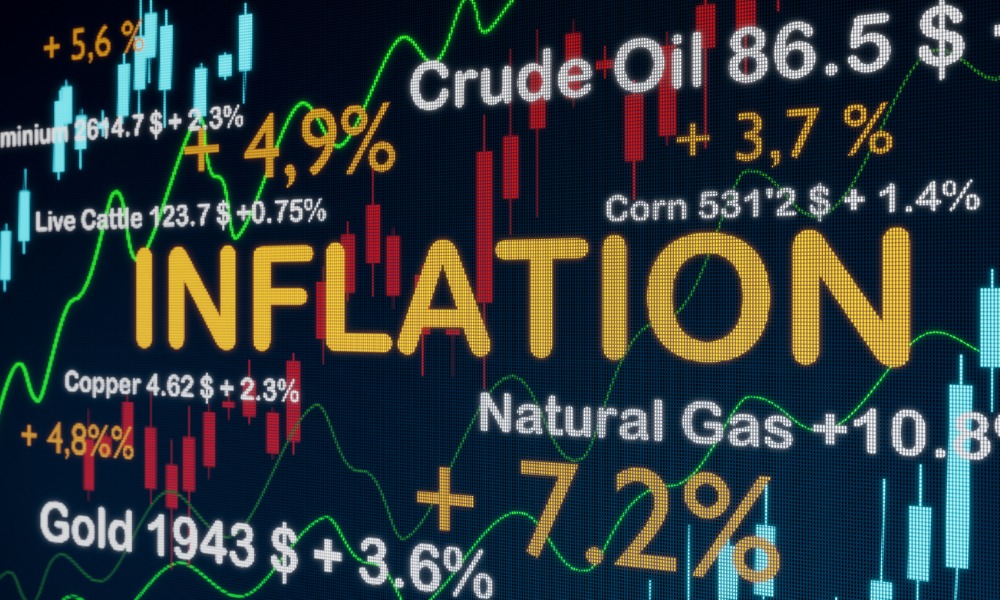Economists see inflation holding near 2%

Inflation in Canada likely held steady at or slightly above the Bank of Canada’s 2% target in November, according to economists, with a temporary boost from Taylor Swift’s Eras Tour in Toronto and energy price trends playing a key role.
A Reuters poll of economists put the average estimate for November’s consumer price index (CPI) growth at 2%, unchanged from October’s figure. However, some analysts expect a slight increase.
"A lot of the pickup in inflation that we're expecting in November is going to be due to some temporary factors surrounding the arrival of Taylor Swift within Canada," said Andrew Grantham, senior economist at CIBC.
Swift’s Toronto concerts, held over two weeks, drove up prices for hotels, restaurants, and tickets, which contributed to the inflationary uptick. Grantham believes the “Swift effect” could push inflation to 2.1%.
Capital Economics also sees a modest rise in November inflation, forecasting an increase to 2.2%. Assistant economist Ruben Gargallo Abarques explained that Swift’s impact on core services such as hotel and airfare prices mirrors trends seen in other developed countries.
“Based on the 'Taylor Swift effect' seen on hotel and airfare prices in other developed countries, we judge core services prices rose by 0.7% month over month,” Abarques said.
While “Swiftonomics” probably contributed to November’s temporary boost, volatile inflation components, such as food and energy prices, remained relatively stable.
Gasoline, which drove inflation up to 2% in October after a previous 1.6% reading, was largely unchanged year over year in November. However, Abarques noted that seasonally adjusted gasoline prices still saw a 3% month-over-month rise, combined with a spike in natural gas prices in Alberta.
“Together with a jump in natural gas prices in Alberta, energy prices probably rose by three per cent month-over-month — boosting CPI by 0.2%,” Abarques wrote.
Meanwhile, food prices are expected to hold steady at around 3% year over year, according to RBC economists Nathan Janzen and Claire Fan.
“Canadian consumer price index growth is expected to have eased slightly in November after picking up in October,” RBC wrote in a client note. They also pointed to signs that shelter inflation may have slowed.
Mortgage interest costs, which have been a significant driver of inflation, are starting to ease. While costs were still 15% higher year-over-year in October, this marks a notable decline from the 30% growth peak in 2023. RBC economists expect this trend to continue as interest rate cuts filter through the market.
The Bank of Canada recently lowered its key policy rate by 50 basis points to 3.25%, its fifth consecutive cut since June, citing a cooling job market and reduced hiring activity.
Read more: Canada's housing market gathers pace amid lower rates
Grantham expects inflation to decelerate in December and January due to the federal government’s temporary GST holiday. The federal tax break, which took effect on December 14 and runs until February 15, waives the 5% sales tax on specific products.
“This is just something which is temporarily going to make the inflation numbers look weaker and then as that ends, the inflation numbers look stronger again after that fades in February and March,” Grantham explained.
The Bank of Canada anticipates the GST holiday could temporarily push inflation down to 1.5% in January.
However, inflation’s outlook remains uncertain as external risks loom. One significant wildcard is the potential for a 25% tariff on Canadian goods proposed by Donald Trump. If enacted, the tariffs would push inflation higher in the new year.
“If (a) tariff threat does materialize and we do retaliate, we will see an upward pressure on inflation but it will be kind of a one-time price increase,” Grantham said, adding that the impact would last for one year until the tariffs drop out of annual inflation calculations.
Make sure to get all the latest news to your inbox on Canada’s mortgage and housing markets by signing up for our free daily newsletter here.



